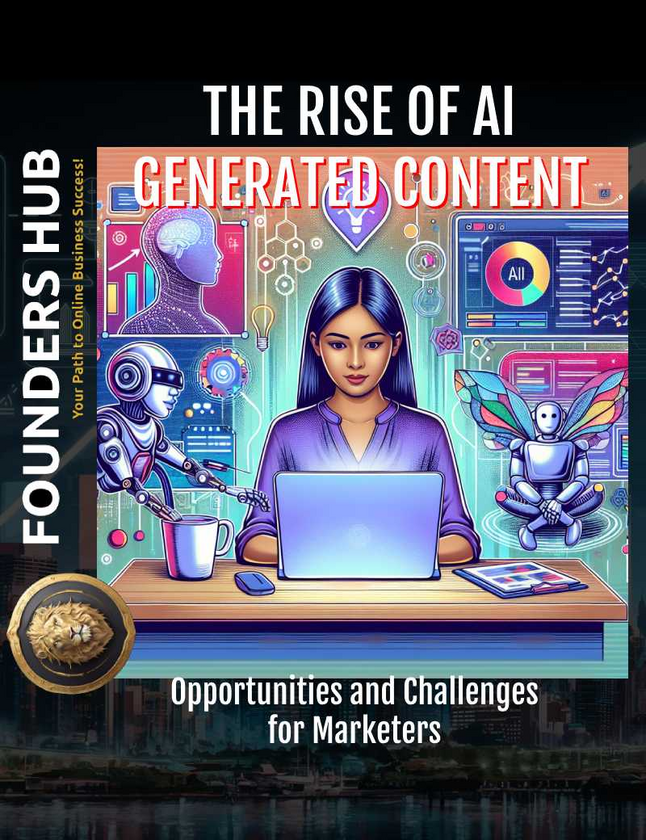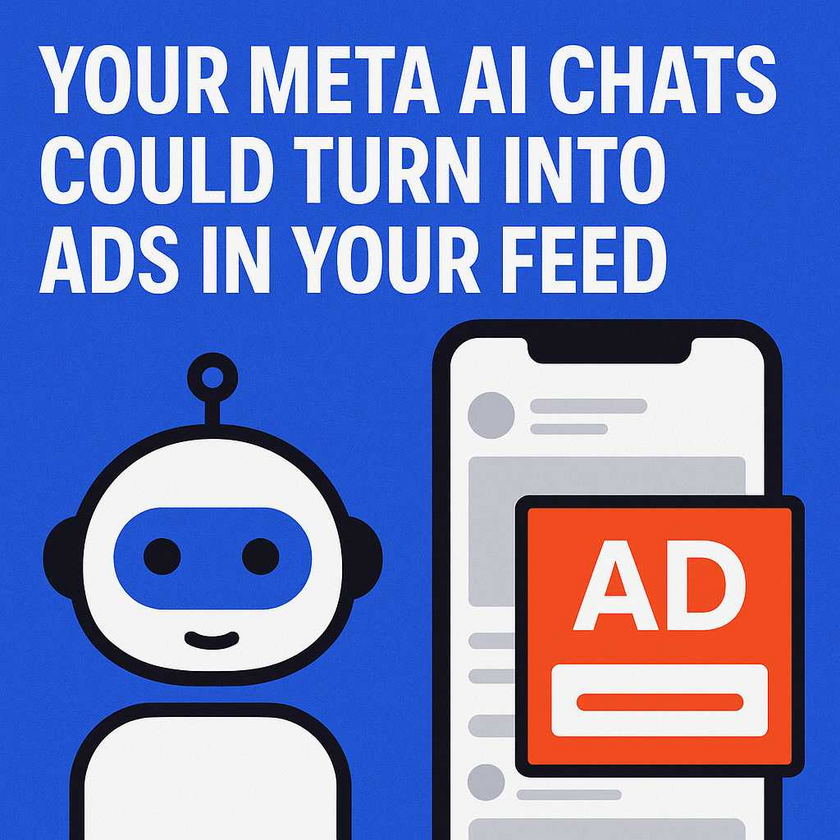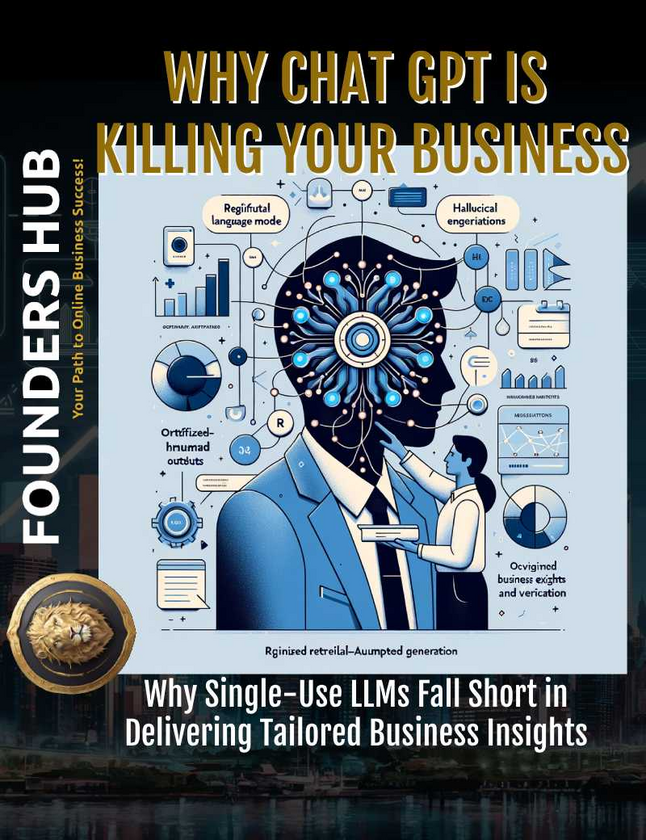In the ever-evolving landscape of marketing, the rapid advancement of generative AI has opened up new frontiers, promising both opportunities and challenges. As technology continues to reshape industries, marketers find themselves grappling with the question of how to harness the power of AI-generated content effectively. According to a recent survey, a staggering 45% of marketers are already leveraging AI for content creation, including writing, images, and idea generation.
> Key Takeaway: The rise of AI-generated content presents a paradigm shift for marketers, offering unparalleled efficiency and personalization, but also raising concerns about authenticity, ethics, and quality control. Navigating this landscape requires a strategic and balanced approach.
Benefits of AI-Generated Content
Personalized Marketing
One of the most significant advantages of AI-generated content lies in its ability to deliver highly personalized marketing experiences. By analyzing vast amounts of data, AI algorithms can identify individual customer preferences, pain points, and behaviors, enabling the creation of tailored content that resonates with each user. This level of personalization can significantly enhance user engagement, drive conversions, and foster long-lasting customer relationships.
Companies like Amazon have long been leveraging AI to provide personalized product recommendations and descriptions, contributing to their success in the e-commerce space. As AI technology continues to evolve, the potential for even more sophisticated personalized marketing strategies becomes increasingly tangible.
Efficiency and Cost Savings
In the fast-paced world of marketing, time and resources are precious commodities. AI-generated content offers a game-changing solution by automating the content creation process, significantly reducing the need for human labor. This not only translates into substantial cost savings but also enables marketers to produce content at an unprecedented pace, keeping up with the ever-increasing demand for fresh and engaging material.
Small and medium-sized enterprises (SMEs), which often operate with limited marketing budgets, stand to benefit greatly from the efficiency and cost-effectiveness of AI-generated content. By leveraging AI tools, these businesses can compete on a more level playing field with larger corporations, creating high-quality content without breaking the bank.
SEO-Friendly Content
Search engine optimization (SEO) is a critical component of any successful digital marketing strategy, and AI-generated content can be a powerful ally in this endeavor. Advanced AI tools can be programmed to seamlessly incorporate relevant keywords and phrases into the content, ensuring that it ranks higher in search engine results and reaches the intended audience more effectively.
Moreover, AI algorithms can stay up-to-date with the latest SEO trends and best practices, adapting the content accordingly to maintain its competitiveness. Tools like Business Media Generator have been specifically designed to optimize content for SEO using AI technology, providing marketers with a valuable edge in the highly competitive online landscape.
Multilingual Capabilities
In today's globalized world, businesses are increasingly seeking to expand their reach beyond borders. AI-generated content offers a powerful solution by enabling the creation of multilingual content at scale. By leveraging AI's ability to translate and localize content, companies can effectively communicate with audiences across different languages and cultures, without the need for extensive human translation resources.
Global brands like Coca-Cola and Nike have successfully leveraged AI for localization, ensuring that their marketing messages resonate with diverse audiences worldwide. This not only enhances brand visibility but also fosters stronger connections with customers, ultimately driving growth and success in international markets.
Challenges of AI-Generated Content
While the benefits of AI-generated content are undeniable, it is crucial for marketers to be aware of the potential challenges and address them proactively.
Uniqueness and Authenticity
One of the primary concerns surrounding AI-generated content is the potential lack of uniqueness and authenticity. Human writers bring a creative flair and unique voice to their work, which can be challenging for AI algorithms to replicate. Over-reliance on templates and pre-existing data can result in monotonous and predictable content, failing to capture the essence of a brand's personality or resonate with its audience.
According to a survey, a staggering 34.3% of marketers reported that AI-generated content often requires significant edits to achieve the desired level of quality and authenticity. This highlights the importance of striking a balance between leveraging AI's efficiency and preserving the human touch that resonates with audiences.
Ethical Concerns
The rise of AI-generated content has also raised ethical concerns within the marketing community. There is a risk that AI algorithms, if not properly trained and monitored, could produce misleading, biased, or even harmful content. This not only compromises the integrity of the brand but also erodes consumer trust, which is essential for building long-lasting relationships.
Transparency is key when it comes to the ethical use of AI-generated content. Brands must be upfront about their use of AI and ensure that the content adheres to the highest standards of accuracy and truthfulness. Failure to do so can have severe consequences, as evidenced by numerous cases where ethical lapses in AI content have tarnished brand reputations and led to public backlash.
Balancing Benefits and Risks
While the benefits of AI-generated content are compelling, it is essential for marketers to adopt a balanced approach that leverages the advantages of AI while mitigating potential risks. This involves implementing robust quality control measures, maintaining human oversight, and fostering a culture of ethical and responsible AI usage within their organizations.
Companies like Salesforce and IBM have successfully implemented strategies that integrate AI tools into their content creation processes while ensuring that human expertise and creativity remain at the forefront. By striking this balance, they have been able to reap the benefits of AI-generated content while minimizing the associated risks.
Creativity and Over-Reliance
While AI can undoubtedly enhance creativity by generating novel ideas and content, there is a risk of marketers becoming overly reliant on these tools. According to a survey, 42% of high-growth companies rely on marketing for their most creative ideas, highlighting the importance of preserving human ingenuity and critical thinking in the content creation process.
Over-reliance on AI-generated content can stifle creativity and lead to a homogenization of marketing messages, ultimately diminishing their impact and effectiveness. Marketers must remain vigilant and continuously challenge themselves to think outside the box, using AI as a tool to augment and inspire human creativity rather than replace it entirely.
Poor-Quality Content
While AI-generated content can be highly efficient, there is a risk of compromising quality if proper measures are not taken. AI algorithms are not infallible, and their output may sometimes be subpar, requiring significant edits and revisions to meet the desired standards.
Quality control is crucial when leveraging AI-generated content. Marketers must implement rigorous review processes, involving human experts who can identify and address any errors, inconsistencies, or issues with the content. Tools like Grammarly and Hemingway Editor can assist in this process, but they should not be relied upon as the sole arbiter of quality.
Data Analysis and Privacy
The use of AI-generated content also raises concerns regarding data analysis and privacy. AI algorithms rely on vast amounts of data to function effectively, and this data may include sensitive customer information or personal details. Marketers must exercise caution and implement stringent data privacy measures to protect customer data and comply with relevant regulations, such as the General Data Protection Regulation (GDPR).
Failure to address these concerns can not only result in legal consequences but also erode consumer trust, which is essential for building long-lasting relationships. Brands must be transparent about their data collection and usage practices, and ensure that customer data is handled with the utmost care and respect for privacy.
Conclusion
The rise of AI-generated content presents both opportunities and challenges for marketers. While the benefits of personalized marketing, efficiency, cost savings, SEO optimization, and multilingual capabilities are undeniable, concerns around uniqueness, authenticity, ethics, quality control, and data privacy must be addressed proactively.
As AI technology continues to evolve, it is crucial for marketers to adopt a balanced and strategic approach, leveraging the power of AI while maintaining human oversight and creativity. By striking this balance, marketers can harness the full potential of AI-generated content while mitigating its risks and ensuring that their marketing efforts remain authentic, ethical, and effective.
The future of marketing lies in the seamless integration of AI and human expertise, where technology augments and enhances human creativity rather than replacing it entirely. By embracing this synergy, marketers can stay ahead of the curve, delivering exceptional content that resonates with audiences and drives business success in an increasingly competitive and rapidly evolving landscape.
Learn more about the best AI tools to use when developing content for your business using the Business Media Generator



















